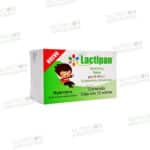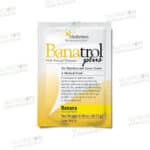While stress and anxiety are conditions rooted in the management of emotions and psychological apprehension, manifesting as excessive worry over a situation and potentially leading to physical symptoms like headaches, lack of concentration, or stress eating, it has been proven that certain nutrients can help manage them and provide restorative rest despite these symptoms.
The diet for people with these types of conditions should include foods that are high in magnesium, omega-3 fatty acids, probiotics, and tryptophan. These nutrients, among other things, support the regulation of gut flora, which is known to be associated with mental health through the gut-brain axis. For example, they can support increased production of serotonin, which acts in the brain and is known as the “happiness hormone.”
Omega-3 Fatty Acids
Omega-3 is a healthy fat rich in EPA and DHA, substances that, in addition to having anti-inflammatory potential, improve brain function and reduce anxiety. Low intake of omega-3 has been associated with depressive disorders in various studies. Some omega-3-rich foods include salmon, sardines, trout, flaxseed, chia seeds, and flaxseed oil. It is suggested to consume them at least 2 to 3 times a week to maintain healthy levels.
Magnesium
Magnesium is an essential mineral with functions that stimulate neural membranes, producing a relaxing effect on brain activity that results in decreased stress and anxiety, as well as other functions like muscle relaxation.
Some magnesium-rich foods include oats, spinach, bananas, sesame seeds, chia seeds, flaxseed, walnuts, almonds, and pumpkin seeds. . It is recommended to consume at least 1-2 servings per day to ensure daily magnesium intake.
Tryptophan
Tryptophan is an amino acid that participates in serotonin production, influencing mood, stress, depression, anxiety, and sleep regulation, preventing insomnia.
Some foods containing tryptophan include chicken, fish, eggs, cheese, dark chocolate, pineapple, salmon, almonds, and walnuts.
Probiotics
Imbalances in gut flora, known as dysbiosis, and gut inflammation have been linked in numerous scientific studies to mental conditions, anxiety, and depression by altering the release of neuromodulators. Correcting gut flora balance can reduce anxiety symptoms. One of the probiotic strains with the most evidence in this regard is Lactobacillus Rhamnosus and Bifidobacterium Longum.
While probiotics are often supplemented with these strains, they can also be consumed through fermented foods like kefir, yogurt, kombucha, and sauerkraut.
Are there foods to avoid?
Primarily, we avoid consuming foods made from flour or with high sugar content that can affect serotonin production. Additionally, we steer clear of stimulant foods like caffeine, black sodas, ginseng, and artificial sweeteners.




